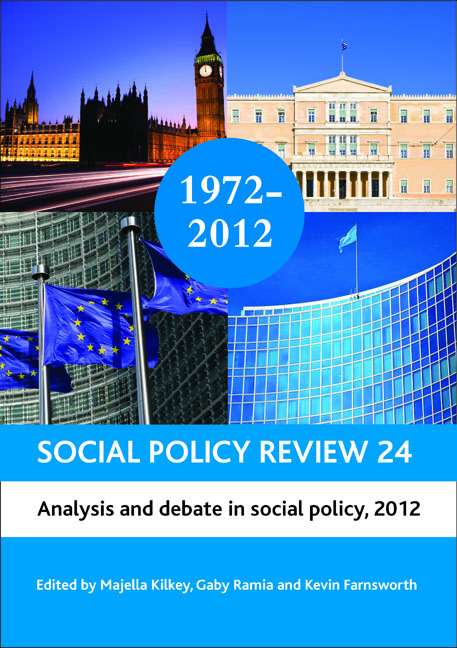fourteen - Seeking refuge in the Nordic model: social policy in Iceland after 2008
Published online by Cambridge University Press: 07 September 2022
Summary
Introduction
As a small island state, Iceland has not figured prominently in comparative analysis or welfare state modelling and has only recently gained popular notoriety as a result of its economic and environmental volatility. Notwithstanding the parallels between the global effects of volcanic ash clouds and the ballooning detritus of international finance, this chapter focuses on the Icelandic experience of 21st-century financial crisis, and what this might reveal about the development of social policy. Iceland's position as the earliest country to face post-2008 economic collapse is significant in terms of lessons to be drawn regarding financial regulation and the political process. The post-crisis Icelandic welfare trajectory is even more significant, however, in considering both the challenge (or not) to neo-liberal hegemony posed by the global economic crisis and the extent to which welfare states are bound (or not) to particular patterns of national response. The chapter begins with some commentary on the place of small (island) states in global context, and outlines some of the key historical and socio-political features that have shaped the Icelandic welfare state. After setting out how Iceland came to be at the centre of the financial crisis, the chapter goes on to explore social policy development since 2008. The discussion in the final section reflects on the extent to which the post-crisis response in Iceland represents an alternative vision giving lasting change, or a variant of the social and economic triage represented in the responses of other advanced economies.
Small island states: just extras on the world stage?
Academic literature on small states, and more particularly small island states, is mainly found in the disciplines of economics, international relations and development studies, complemented by long-standing anthropological and sociological insight gained from the study of the organisation of bounded, homogeneous population groups (eg Cohen, 1987; Goffman, 1990 [1959]; Benedict, 1993 [1934]; Malinowski, 2002 [1922]). Until very recently, notably with the UNRISD1 ‘Social policy in small states’ project (2007–9), social development and welfare arrangements in small states have not been of significant interest in comparative social policy studies. This partly reflects the analytical dismissal of ‘size’ as a factor within the traditional concerns of welfare regime theory (Irving, 2011a), but also the wider assumptions regarding the characteristics of small (island) states and their place in the world system. For small island states, apparent peripheral status is assumed due to both geography and size.
- Type
- Chapter
- Information
- Social Policy Review 24Analysis and Debate in Social Policy, 2012, pp. 297 - 318Publisher: Bristol University PressPrint publication year: 2012

